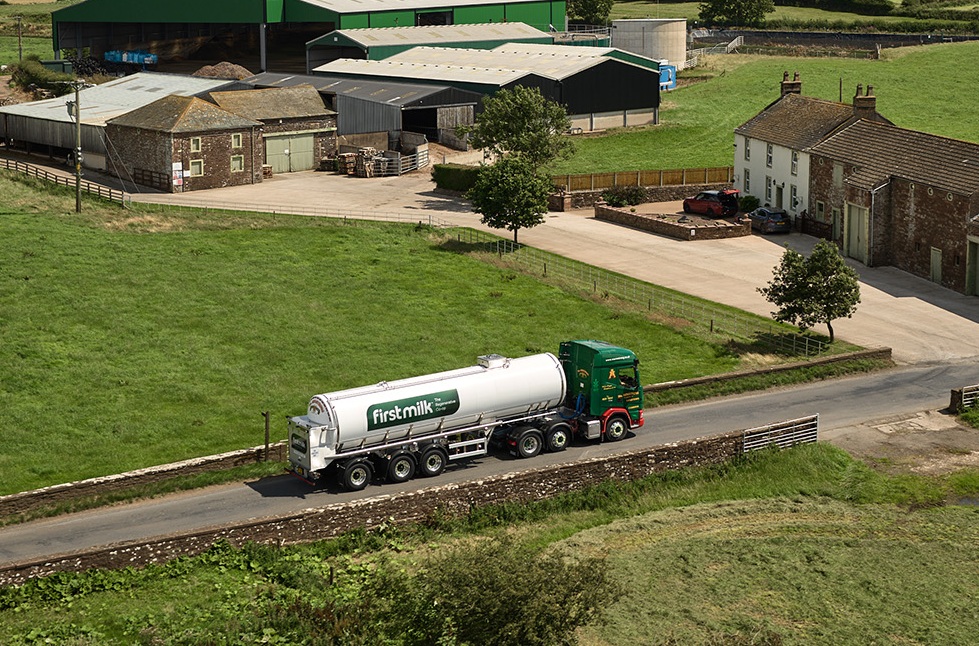
First Milk has delivered a 20% surge in turnover to £570 million, alongside a rise in profits, as it integrates BV Dairy and accelerates its regenerative farming agenda.
The dairy co-operative has posted a robust set of results for the year ending 31 March 2025, highlighting both financial strength and progress on its regenerative farming commitments.
The Annual Financial and Impact Report, published today (28 August), revealed turnover of £570 million, up 20% on the previous year’s £476 million.
Growth was driven by the full-year effect of its February 2024 acquisition of BV Dairy, coupled with increased sales of milk, whey protein and chilled speciality products.
Operating profit climbed to £20.5 million, compared with £16.8 million last year, while total group capital and reserves rose to £62.5 million from £58.5 million in 2024.
Despite significant investment, First Milk said it had kept net debt “broadly stable” at £66 million, just above last year’s £64.9 million, while also paying off outstanding loan notes linked to the BV Dairy deal.
Strategic investment of £4.7 million included £3.9 million in capital projects at its cheese creameries in the Lake District and Pembrokeshire.
The integration of BV Dairy is progressing at pace, with First Milk introducing a new structure comprising three business units: BV Dairy, Cheese, and Milk.
This reorganisation, the co-operative said, was designed to sharpen customer responsiveness and maximise opportunities generated through farmer-led Regenerative Farm Plans.
First Milk reported further momentum in its sustainability agenda. Land enrolled in its regenerative programme rose by 6% to 89,977 hectares, while members achieved a 3.2% cut in carbon intensity to 1.13 kgCO2e per kg of fat and protein corrected milk.
Soil carbon sequestration more than doubled to 203,000 tonnes CO2e, up from 114,000 tonnes last year.
However, the co-operative noted that total greenhouse gas emissions across Scope 1, 2 and 3 increased by 14% year-on-year, largely due to the full-year footprint of BV Dairy and growth in production of energy-intensive whey products.
In mitigation, First Milk confirmed it now sources 100% of its purchased electricity from renewables and sends no waste to landfill from its three manufacturing sites.
Commenting on the results, Shelagh Hancock, chief executive of First Milk, said the co-operative had achieved strong progress despite a challenging backdrop.
“In a year of subdued economic growth in the UK and across export markets, our solid business performance enabled us to achieve our objective of delivering above market total returns to our members.
"Importantly we achieved this whilst integrating BV Dairy into the First Milk family and paying down the outstanding loan notes related to the acquisition.”
She added that the organisational restructure is already paying dividends, helping customers meet both commercial and sustainability priorities.
“Add to this the benefits that our restructure is bringing to our customers, to better support them on their commercial and ESG agendas, it’s a year when we made important progress on adding value to our customers and members and building our resilience.”
Ms Hancock highlighted the efforts of members in advancing regenerative practices, noting that these measures are strengthening farm businesses by enhancing soil health, supporting biodiversity, and safeguarding water resources, while also boosting carbon sequestration.
“Ultimately our vision is to enrich life every day to secure the future for our members, colleagues, customers and communities.
"We will do this by ensuring First Milk is a distinctive, regenerative farmer owned co-operative, efficiently producing great tasting, quality dairy products for our customers and consumers.”
